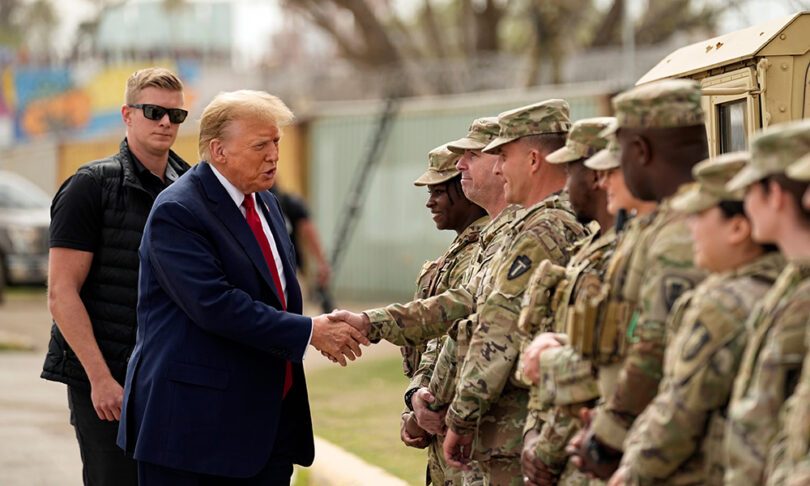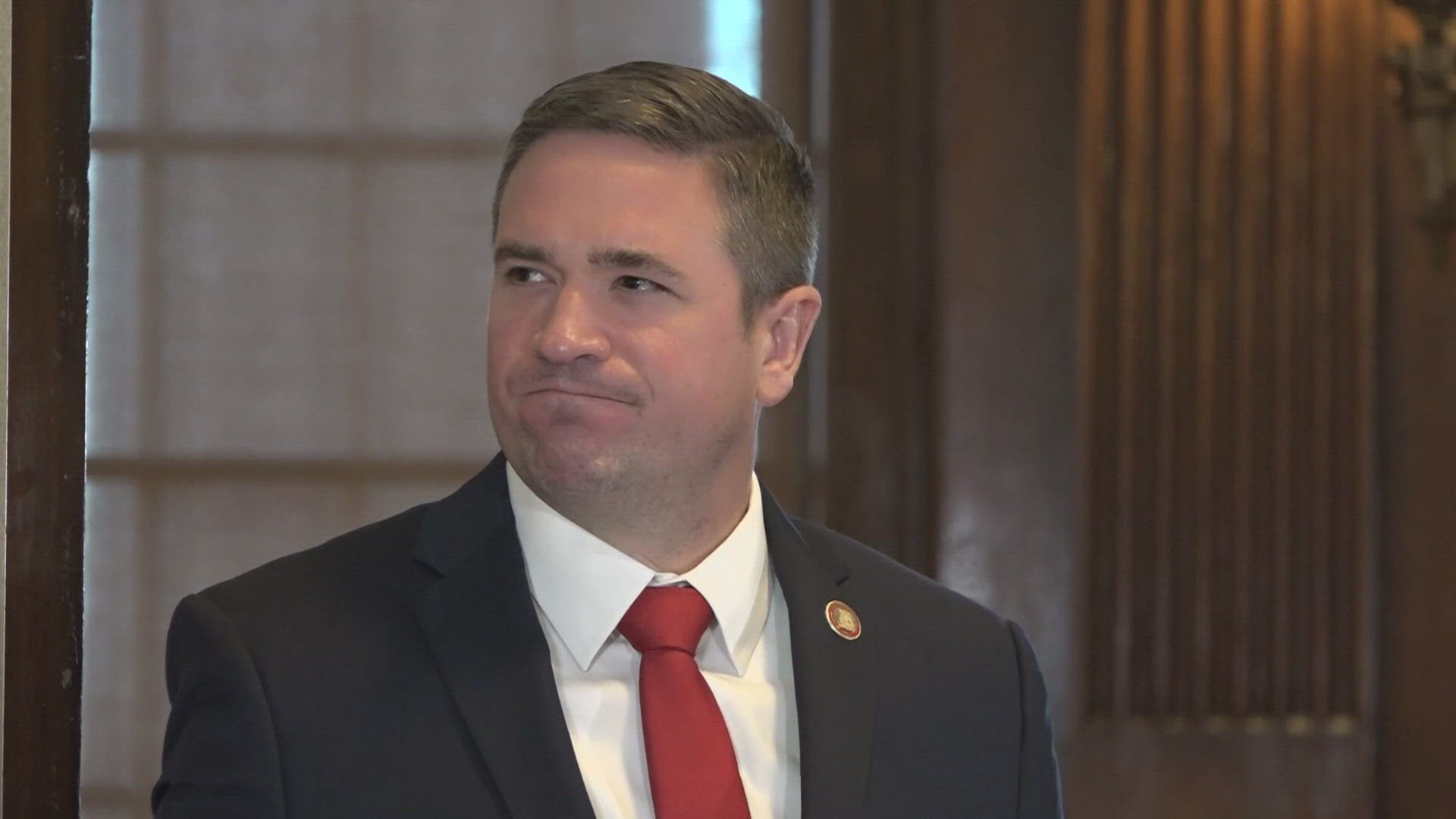In the final months of Donald Trump’s presidency, there emerged reports that his transition team was compiling a list of current and former U.S. military officers who could face courts-martial. The reports have raised eyebrows in both military and political circles, with critics questioning the motivations behind such a move and the potential impact on the U.S. military’s culture and discipline. These actions reflect a broader pattern of controversy that marked the latter part of Trump’s term, especially regarding his stance on the military, loyalty, and discipline.
This article seeks to explore the reports surrounding the alleged compilation of the list of military officers, the potential implications for the U.S. military, and the context of Trump’s relationship with military leadership during his presidency. It will also analyze the legal and constitutional questions raised by such an action, as well as the reaction from military leaders and the public.
Background: Trump’s Relationship with the U.S. Military
Throughout Donald Trump’s presidency, his relationship with the U.S. military was often contentious and characterized by a series of public and private disagreements with military leadership. While Trump frequently touted his support for the armed forces, he also clashed with high-ranking military officers, accusing them of being too entrenched in the Washington establishment and too slow to implement his policies.
Trump’s controversial handling of military issues became particularly apparent during his final months in office. After the 2020 election, which Trump claimed, without evidence, to have been “stolen,” he faced growing opposition from various parts of the military leadership. Several high-ranking officers expressed public support for the results of the election and condemned Trump’s false claims of election fraud.
This period also saw heightened tensions surrounding the role of the military in American politics, especially in the wake of the January 6 Capitol riot. As Trump’s supporters stormed the U.S. Capitol in an attempt to overturn the election results, questions arose about the role the military might play in addressing or intervening in the political unrest.
In this context, Trump’s transition team reportedly began compiling a list of military officers—current and former—who might be subject to courts-martial. This list, according to reports, was linked to their perceived disloyalty to Trump or their public opposition to his actions following the election.
The Alleged List: Who Is at Risk of Courts-Martial?
The reports surrounding the alleged list created by Trump’s transition team suggest that it included both active-duty military officers and retired generals. Some of the names on the list were reportedly linked to their outspoken criticisms of Trump, particularly following the 2020 election and the January 6 insurrection. These officers, some of whom had held high-ranking positions, had voiced support for the peaceful transfer of power and criticized Trump’s efforts to overturn the results.
The idea behind the list appears to have been to identify military leaders who, in Trump’s view, were not sufficiently loyal to him or his administration. Loyalty was a central tenet of Trump’s leadership style, and he often dismissed or sidelined those who did not share his worldview. In the case of military leaders, this loyalty was tested during the election aftermath and the Capitol riot, when some officers were seen as insufficiently aligned with Trump’s claims of election fraud or were critical of his actions during the crisis.
In a particularly significant moment, General Mark Milley, the Chairman of the Joint Chiefs of Staff, became a target of Trump’s ire. Milley had publicly defended the Constitution and the peaceful transfer of power, making him a prominent figure in the military’s opposition to Trump’s post-election efforts. Other senior officers, such as former Defense Secretary Jim Mattis and General John Kelly, were also seen as figures of resistance to Trump’s leadership, further fueling the speculation that their names might be on the list.
These officers were, of course, not alone in their opposition to Trump’s leadership. There was widespread concern within the military establishment about the potential for a breakdown of the democratic process. The military, traditionally seen as an apolitical institution, found itself in a difficult position, balancing its duty to the Constitution with the pressures of supporting a president who was perceived as challenging established norms and institutions.
Courts-Martial: What Does It Mean and Is It Possible?
A court-martial is a legal proceeding under the Uniform Code of Military Justice (UCMJ) that is used to try members of the U.S. military for alleged violations of military law. Courts-martial are typically reserved for serious offenses such as treason, espionage, insubordination, and desertion. The process allows military personnel to be tried by a panel of officers and/or enlisted members of the armed forces, with sentences that can include imprisonment, dishonorable discharge, or even the death penalty in extreme cases.
While courts-martial are a key aspect of military discipline, the notion that a president might use them as a tool for political retribution is highly unusual and raises constitutional concerns. Under the UCMJ, courts-martial are typically used to address violations of military law, not political disagreements or conflicts over loyalty to the commander-in-chief. Therefore, the idea of using courts-martial to target officers based on their political views or public opposition to the president is troubling to many legal experts and military observers.
Moreover, courts-martial are subject to oversight by both military and civilian authorities, including the Department of Defense and the judiciary. Military leaders and commanders are generally expected to be impartial when making decisions regarding courts-martial, and the process is designed to ensure that military justice is fair and free from political interference. The use of courts-martial in this manner would likely be viewed as a significant breach of these principles.
Reaction from the Military Community
The reported efforts by Trump’s transition team to compile a list of officers for possible courts-martial prompted strong reactions from both serving members of the military and veterans. Many military leaders expressed concern that such actions could undermine the professionalism and non-partisan nature of the armed forces.
General Milley, who had already faced criticism from Trump for his statements on democracy and the election, became a focal point of this controversy. Milley’s leadership was praised by many within the military for his commitment to upholding constitutional principles and his refusal to use the military to interfere in political matters. His actions, including his public statements condemning the January 6 insurrection, were seen by many as a necessary defense of the military’s role in safeguarding democracy.
Veterans’ groups and active-duty officers also voiced concern about the implications of such a list. The military has long prided itself on maintaining a commitment to service above politics, with officers and enlisted personnel expected to put country before party. The idea that military officers could be targeted for their political beliefs or their opposition to a sitting president was seen as an assault on this fundamental principle.
The Legal and Constitutional Implications
The legal implications of such a move are significant. The U.S. Constitution guarantees freedom of speech and the right to criticize the government, including the president. Targeting military officers for their political beliefs or for publicly disagreeing with the president could be seen as a violation of these constitutional rights. Moreover, such actions could undermine the independence and integrity of the military, which is supposed to remain apolitical and focused solely on defending the country, not engaging in partisan politics.
Legal scholars have noted that while the president has the authority to issue pardons and make decisions regarding military personnel, there are strict limits to this power. Courts-martial, as a mechanism for enforcing military law, are meant to address legal violations, not political disagreements. The potential weaponization of the court-martial process for political retribution would represent an unprecedented overreach by the executive branch.
Conclusion: The Impact on Military and Political Norms
The revelation that Donald Trump’s transition team allegedly compiled a list of military officers for potential courts-martial raises important questions about the intersection of military discipline, political power, and constitutional rights. While the military is an institution grounded in tradition and respect for authority, it also relies on the principle of non-partisanship to function effectively.
The controversy surrounding this issue underscores the delicate balance that must be maintained between loyalty to the president and the duty to uphold the Constitution. If such tactics were ever implemented, they would have long-lasting consequences on the relationship between the military and political institutions in the U.S. Ultimately, it is critical to safeguard the professionalism and integrity of the military, ensuring that it remains a force for stability and national security, free from political interference and retribution.



